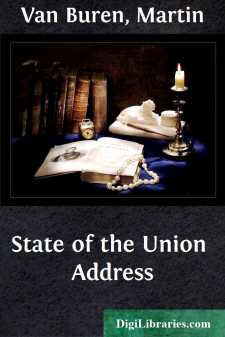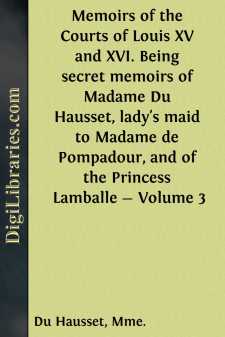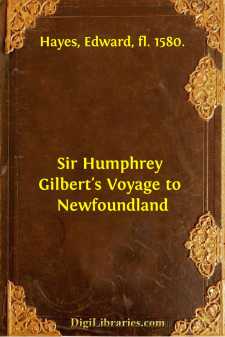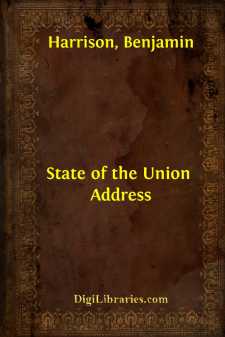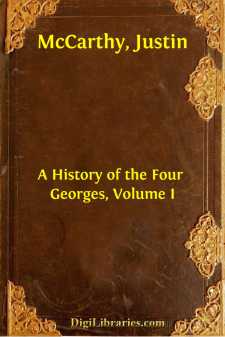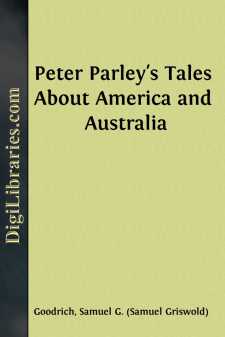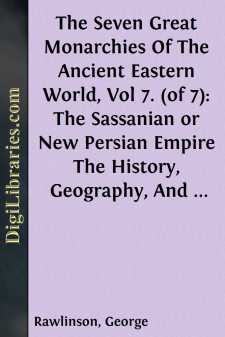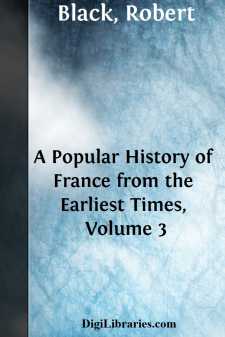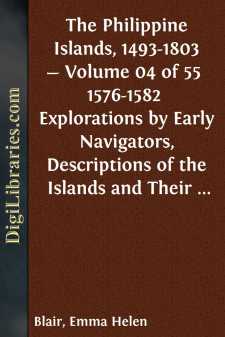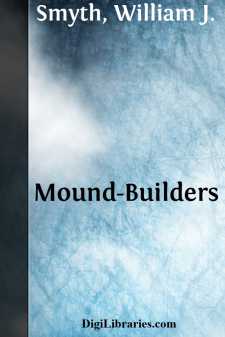History
- Africa 30
- Americas (North Central South West Indies) 50
- Ancient 68
- Asia 58
- Australia & New Zealand 8
- Canada 41
- Caribbean & West Indies 1
- Civilization 20
- Eastern Europe 12
- Europe 310
- Expeditions & Discoveries 60
- General 77
- Historical Geography 1
- Jewish 9
- Latin America 3
- Medieval 8
- Middle East 13
- Military 248
- Revolutionary 8
- Study & Teaching 5
- United States 353
- Western Europe 56
- World 13
History Books
Sort by:
by:
Martin Van Buren
Fellow-Citizens of the Senate and House of Representatives: We have reason to renew the expression of our devout gratitude to the Giver of All Good for His benign protection. Our country presents on every side the evidences of that continued favor under whose auspices it, has gradually risen from a few feeble and dependent colonies to a prosperous and powerful confederacy. We are blessed with domestic...
more...
by:
Mme. Du Hausset
INTRODUCTION. I should consider it great presumption to intrude upon the public anything respecting myself, were there any other way of establishing the authenticity of the facts and papers I am about to present. To the history of my own peculiar situation, amid the great events I record, which made me the depositary of information and documents so important, I proceed, therefore, though reluctantly,...
more...
by:
Edward Hayes
INTRODUCTORY NOTE Sir Humphrey Gilbert, the founder of the first English colony in North America, was born about 1539, the son of a Devonshire gentleman, whose widow afterward married the father of Sir Walter Raleigh. He was educated at Eton and Oxford, served under Sir Philip Sidney's father in Ireland, and fought for the Netherlands against Spain. After his return he composed a pamphlet urging...
more...
To the Senate and House of Representatives: There are few transactions in the administration of the Government that are even temporarily held in the confidence of those charged with the conduct of the public business. Every step taken is under the observation of an intelligent and watchful people. The state of the Union is known from day to day, and suggestions as to needed legislation find an earlier...
more...
by:
Justin McCarthy
CHAPTER I. "MORE, ALAS! THAN THE QUEEN'S LIFE!" "The Queen is pretty well," Swift wrote to Lord Peterborough on May 18, 1714, "at present, but the least disorder she has puts all in alarm." Swift goes on to tell his correspondent that "when it is over we act as if she were immortal; neither is it possible to persuade people to make any preparations against an evil...
more...
CHAPTER I. PARLEY TELLS HOW AMERICA WAS FIRST DISCOVERED, AND ABOUT COLUMBUS THE DISCOVERER. Now that I have given you an account of European cities in my "Tales about Europe," I shall now furnish you with some description of America, with its flourishing cities, and its multitude of ships, its fertile fields, its mighty rivers, its vast forests, and its millions of happy and industrious...
more...
by:
George Rawlinson
CHAPTER I. Condition of the Persians under the Successors of Alexander—under the Arsacidce. Favor shown them by the latter—allowed to have Kings of their own. Their Religion at first held in honor. Power of their Priests. Gradual Change of Policy on the part of the Parthian Monarchs, and final Oppression of the Magi. Causes which produced the Insurrection of Artaxerxes. "The Parthians had been...
more...
by:
Robert Black
CHAPTER XXIII.——THE HUNDRED YEARS' WAR—CHARLES VI. AND THE DUKES OF BURGUNDY. Sully, in his Memoirs, characterizes the reign of Charles VI. as "that reign so pregnant of sinister events, the grave of good laws and good morals in France." There is no exaggeration in these words; the sixteenth century with its St. Bartholomew and The League, the eighteenth with its reign of terror, and...
more...
by:
Emma Helen Blair
Preface The first official report sent by Governor Francisco de Sande to the home government is dated June 7, 1576. It is introduced by a description of the winds prevalent in the Indian Archipelago. Arriving at Manila (August 25, 1575), he finds that much of the city has been destroyed by a Chinese pirate named Limahon; and he relates, in a graphic manner, the circumstances of this affair. In the...
more...
by:
William J. Smyth
MOUND-BUILDERS By Rev. William J. Smyth, M.A., B.Sc., Ph.D. When the early settlers began to pioneer the unbroken forests of North America, they considered the various Indian tribes to be the true Aborigines of this continent. But long before the red man, even long before the growth of the present forests, there lived an ancient race, whose origin and fate are surrounded with impenetrable darkness. The...
more...


